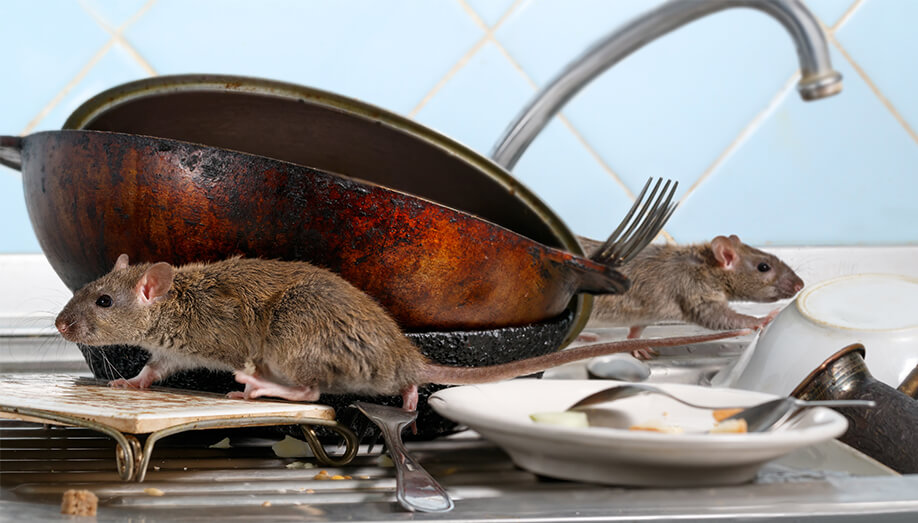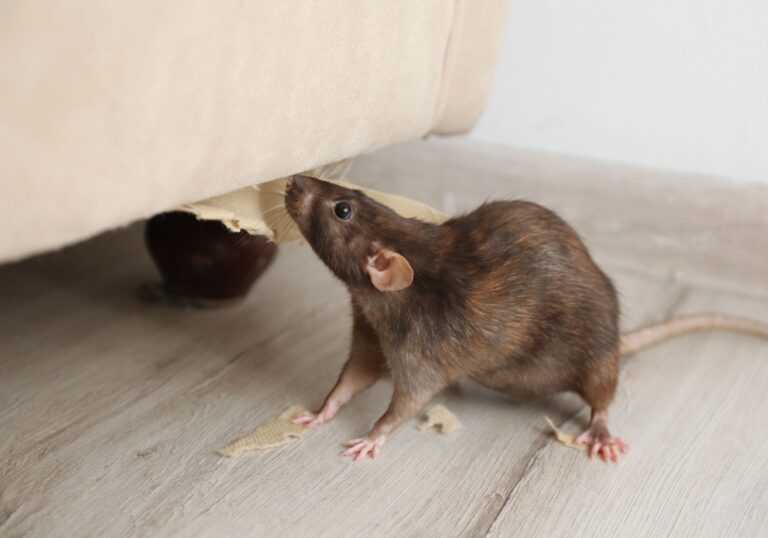Are you struggling with a rat infestation? Don’t worry—this guide will provide everything you need to know about effective rat extermination. From identifying the telltale signs of an infestation to implementing trusted extermination techniques, we’ve got you covered. Rat extermination is crucial for maintaining a clean, safe, and rodent-free home.
Say goodbye to the sleepless nights and property damage caused by rats. Take control of your space with these essential rat removal tips.
Signs of a Rat Infestation
Rats are stealthy creatures that often go unnoticed until the infestation becomes severe. However, several signs can indicate the presence of rats in your home. One of the most common signs is the sight of droppings in areas such as the kitchen, attic, or basement. Rat droppings are small, dark, and pellet-like. Another sign to look out for is gnaw marks on furniture, walls, or wires. Rats have a constant need to chew, and their sharp teeth can cause significant damage to your property.
In addition to physical signs, you may also notice a distinct odor in your home. Rats have a musky smell that can be quite pungent, especially in enclosed spaces. If you hear scratching or scurrying noises in the walls or ceilings, it’s a clear indication that rats have made themselves at home. Finally, if you spot nests made of shredded material, such as paper or fabric, it’s a sure sign that rats have established a breeding ground in your home.
Identifying these signs early on is crucial for effective rat extermination. By recognizing the presence of rats, you can take immediate action to prevent the infestation from spreading and causing further damage.
Health Risks Associated with Rats
Successful rat extermination protects more than just your home, it also safeguards your health. According to the US National Institute of Health, rats carry harmful diseases such as leptospirosis, Salmonella, and E. coli. Their droppings, urine, and saliva can contaminate your food and water, leading to serious gastrointestinal issues. Additionally, rat bites may result in infections like tetanus and rat-bite fever.

In addition to direct health risks, rats can contaminate your food and water sources. They are known to carry bacteria such as Salmonella and E. coli, which can cause severe gastrointestinal illnesses. Furthermore, rats can trigger allergies and asthma attacks in individuals who are sensitive to their dander or urine. It is essential to prioritize rat extermination not only for the sake of your home but also for the health and safety of your family.
DIY Rat Extermination Methods
If you’re dealing with a rat infestation, you may be tempted to take matters into your own hands and attempt DIY extermination methods. While some DIY solutions can be effective for small infestations, it’s important to approach rat extermination with caution.
Rat traps for targeted elimination: One common DIY method to tackle rats is by using rat traps. These traps can be baited with food to attract the rodents. Snap traps and glue traps are popular options. It’s crucial to handle these traps safely to avoid injury and to place them in areas where rats are known to frequent.
Natural deterrents to repel rats: Another approach involves using natural deterrents to repel rats. Peppermint oil or ammonia-soaked rags can emit scents that are unpleasant to rats, discouraging them from entering your home. Placing these deterrents in areas where rats may gain access can help create a barrier.
Sealing off entry points for prevention: To prevent rats from entering your living space, it’s important to seal off potential entry points. Inspect your home for gaps in walls, windows, or doors, and seal them using appropriate materials. This helps to deny rats easy access to your home and reduces the chances of an infestation.
Hiring Professional Rat Exterminators
When it comes to severe rat infestations or when DIY methods fail, it’s time to call in the professionals. Rat exterminators are trained experts who have the knowledge and experience to handle even the most challenging rat problems. They have access to specialized equipment and methods that can effectively eliminate rats from your home.
Before hiring a rat extermination service, it’s essential to do your research and choose a reputable company. Look for exterminators who are licensed and insured, as this ensures that they meet industry standards and regulations. Additionally, read customer reviews and ask for referrals to gauge the quality of their services.
Professional rat exterminators will start by conducting a thorough inspection of your home to identify the extent of the infestation and locate entry points. Based on their findings, they will develop a customized extermination plan that may involve the use of bait stations, traps, or rodenticides. They will also provide recommendations for rat-proofing your home to prevent future infestations.
Rat Prevention Tips
Prevention is always better than cure when it comes to rat infestations. By taking a proactive approach, you can minimize the risk of rats entering your home. Here are some essential prevention tips:
1. Keep your home clean and tidy: Rats are attracted to food sources, so ensure that your kitchen and dining areas are kept clean. Store food in airtight containers and promptly clean up any spills or crumbs.
2. Seal off entry points: Inspect your home for any cracks, gaps, or holes that rats could use to gain entry. Seal these off using caulk, steel wool, or other suitable materials.
3. Trim vegetation: Rats can use overgrown plants and trees as bridges to access your home. Regularly trim branches and shrubs that are close to your property.
4. Secure garbage bins: Make sure your garbage bins have tight-fitting lids to prevent rats from accessing them. Additionally, keep the area around your bins clean and free of food debris.
5. Remove potential nesting materials: Rats will use materials such as paper, fabric, and wood chips to build their nests. Keep these materials stored away in secure containers to discourage nesting.
By implementing these preventive measures, you can significantly reduce the risk of a rat infestation in your home.
Rat Extermination Products and Tools
If you’re tackling a rat infestation on your own, it’s essential to have the right products and tools at your disposal. There are various rat extermination products available in the market, each with its own pros and cons. Snap traps, for example, are a classic choice and can be effective when used correctly. Glue traps are another option, but they can be controversial due to the prolonged suffering they may cause to trapped rats.
Rodenticides are chemical baits that are designed to kill rats. While they can be effective, they should be used with caution, as they can also pose risks to other animals and children if not handled properly. It’s crucial to read and follow the instructions carefully when using rodenticides.
In addition to extermination products, having the right tools can make the process more efficient. These may include gloves, face masks, and protective clothing to minimize the risk of exposure to rat-borne diseases. Sturdy containers for disposing of dead rats and cleaning supplies for sanitizing affected areas are also essential.
Natural and Non-Toxic Rat Extermination Alternatives
If you prefer to take a more environmentally friendly approach to rat extermination, there are natural and non-toxic alternatives available. These methods prioritize the safety of both humans and rats, providing a humane way of dealing with infestations.
One option is the use of ultrasonic devices, which emit high-frequency sound waves that are unpleasant to rats. These devices are safe for humans and pets but can help deter rats from your living space. Another natural alternative is the use of peppermint oil, as rats find its smell repulsive. Place cotton balls soaked in peppermint oil in areas where rats are likely to frequent, such as corners and entry points.
It’s important to note that natural and non-toxic alternatives may not be as effective as traditional extermination methods, especially for severe infestations. However, they can be a useful complement to preventive measures and can help keep rats at bay.
Conclusion and Final Thoughts
Rat infestations can be a nightmare to deal with, but with the right knowledge and techniques, you can successfully eradicate these pests from your home. This Rat Extermination guide is your ultimate resource for tackling this common and frustrating problem. From identifying signs of a rat infestation to implementing proven extermination methods, this comprehensive guide has got you covered.
Remember, early detection and prompt action are key to preventing rats from wreaking havoc in your home. By being proactive and implementing preventive measures, you can significantly reduce the risk of infestations. If DIY methods fail or if you’re dealing with a severe infestation, don’t hesitate to seek professional help from licensed rat exterminators.



